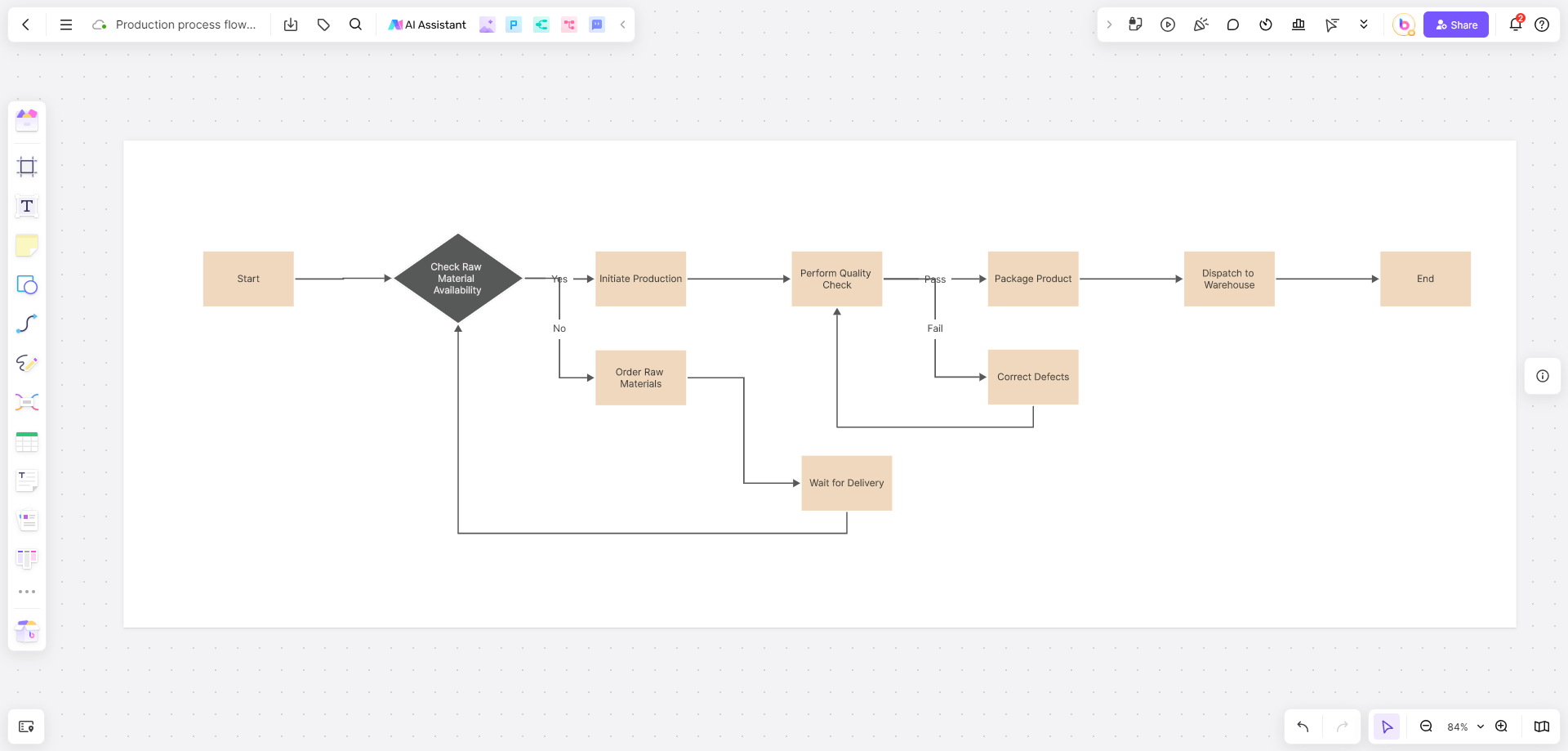Starting a new business is an exciting journey, but without a well-crafted business plan, your startup may struggle to find its footing. A solid business plan for start up company serves as a roadmap, guiding your decisions and helping to secure funding. In this article, we will explore the key elements of a successful business plan, discuss the importance of using the right business plan software, and how tools like Boardmix can simplify the process.
Why is a Business Plan Crucial for a Startup Company?
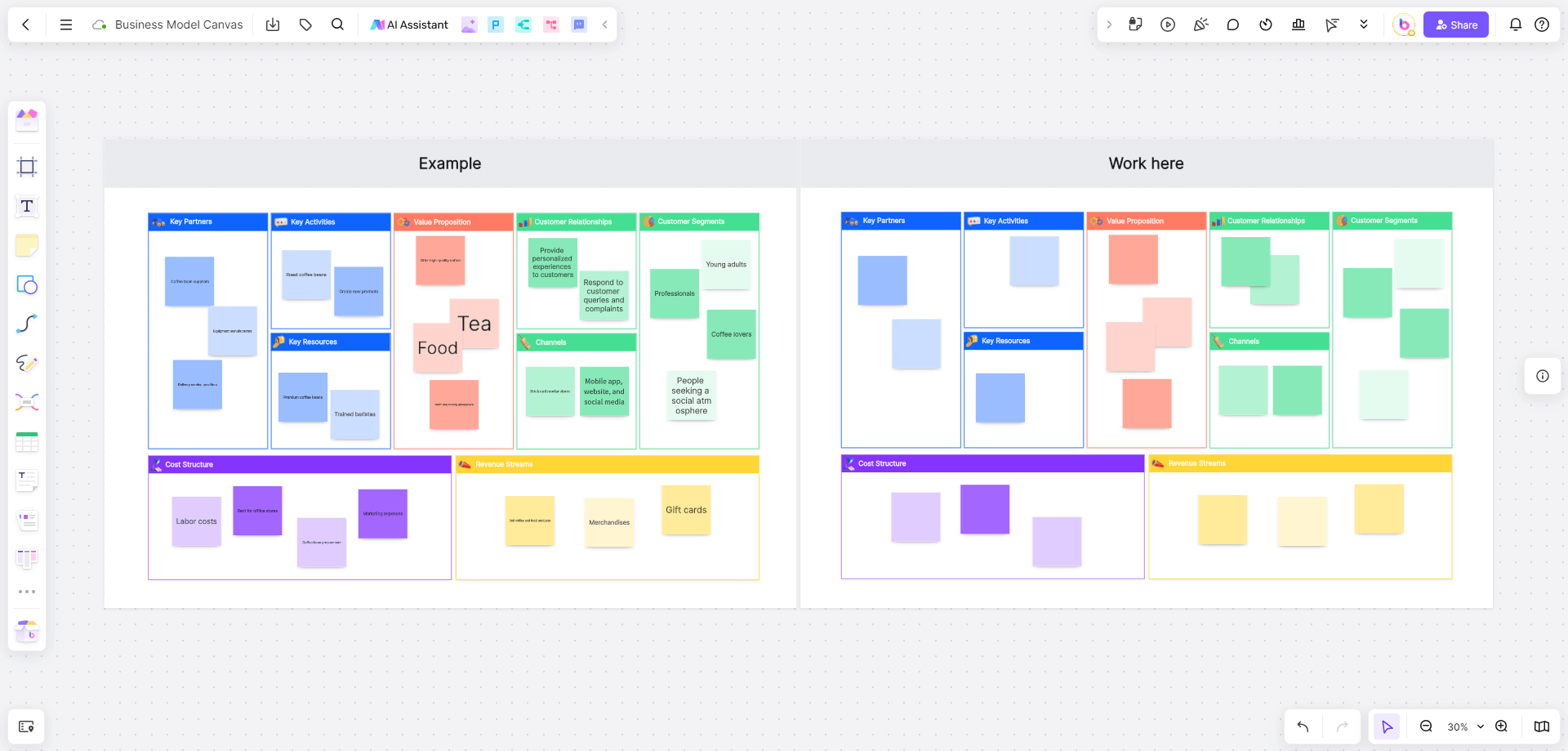
A business plan for start up company is essential for a startup company for several reasons:
Strategic Direction: It provides a clear vision and strategic direction, helping you stay focused on your goals.
Funding and Investment: Investors and lenders often require a detailed business plan before they will provide capital. It demonstrates your commitment and the viability of your business.
Operational Guide: A well-drafted business plan serves as a guide for your daily operations, helping you allocate resources effectively and make informed decisions.
Risk Management: Identifying potential risks and challenges in advance allows you to develop strategies to mitigate them.
For a startup, a business plan for start up company is not just a document; it's a tool that shapes your business's future, making it crucial to spend time crafting a thorough plan.
What Should Be Included in Your Startup Business Plan?
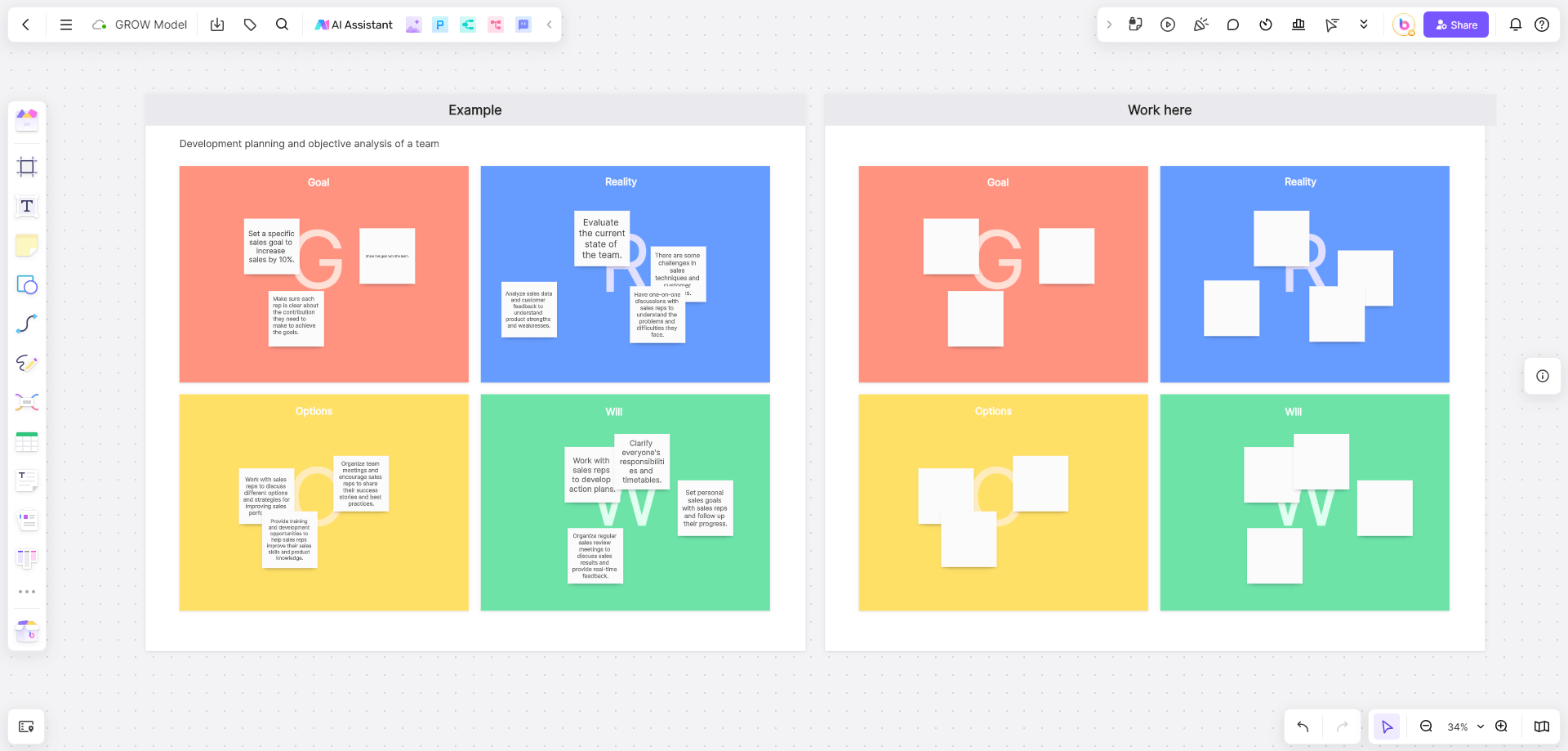
Creating a comprehensive business plan for a start up company involves including the following key sections:
Executive Summary: This is a snapshot of your business, highlighting your mission statement, product or service, and basic information about your company’s leadership, employees, and location.
Company Description: Provide detailed information about your company, including the problems your business solves, your target market, and the competitive landscape.
Market Analysis: Research your industry, market size, and expected growth. Identify your target audience and analyze competitors.
Organization and Management: Outline your business’s organizational structure, including details about the ownership, management team, and board of directors.
Product Line or Services: Describe the products or services you offer, their life cycle, and your plans for research and development.
Marketing and Sales Strategy: Discuss your strategies for attracting and retaining customers, as well as your sales process.
Funding Request: If you are seeking funding, include your funding requirements, potential future funding requirements, and how you plan to use the funds.
Financial Projections: Provide financial forecasts for the next three to five years, including income statements, cash flow statements, and balance sheets.
Appendix: This section includes additional information like resumes, permits, lease agreements, and any other relevant documents.
Incorporating these elements into your business plan for startup company ensures that all critical aspects are covered, making it a comprehensive tool for guiding your business.
How to Choose the Right Business Plan Software?
Choosing the right business plan software is essential for simplifying the process of creating a comprehensive and professional business plan for start up company. Here's how to evaluate your options:
Evaluating 5 Business Plan Software Options
Boardmix:
Boardmix stands out as an all-in-one solution, offering a versatile platform not only for business planning but also for team collaboration. Its intuitive interface and customizable templates make it ideal for startups looking to build a plan from scratch or adapt an existing one.
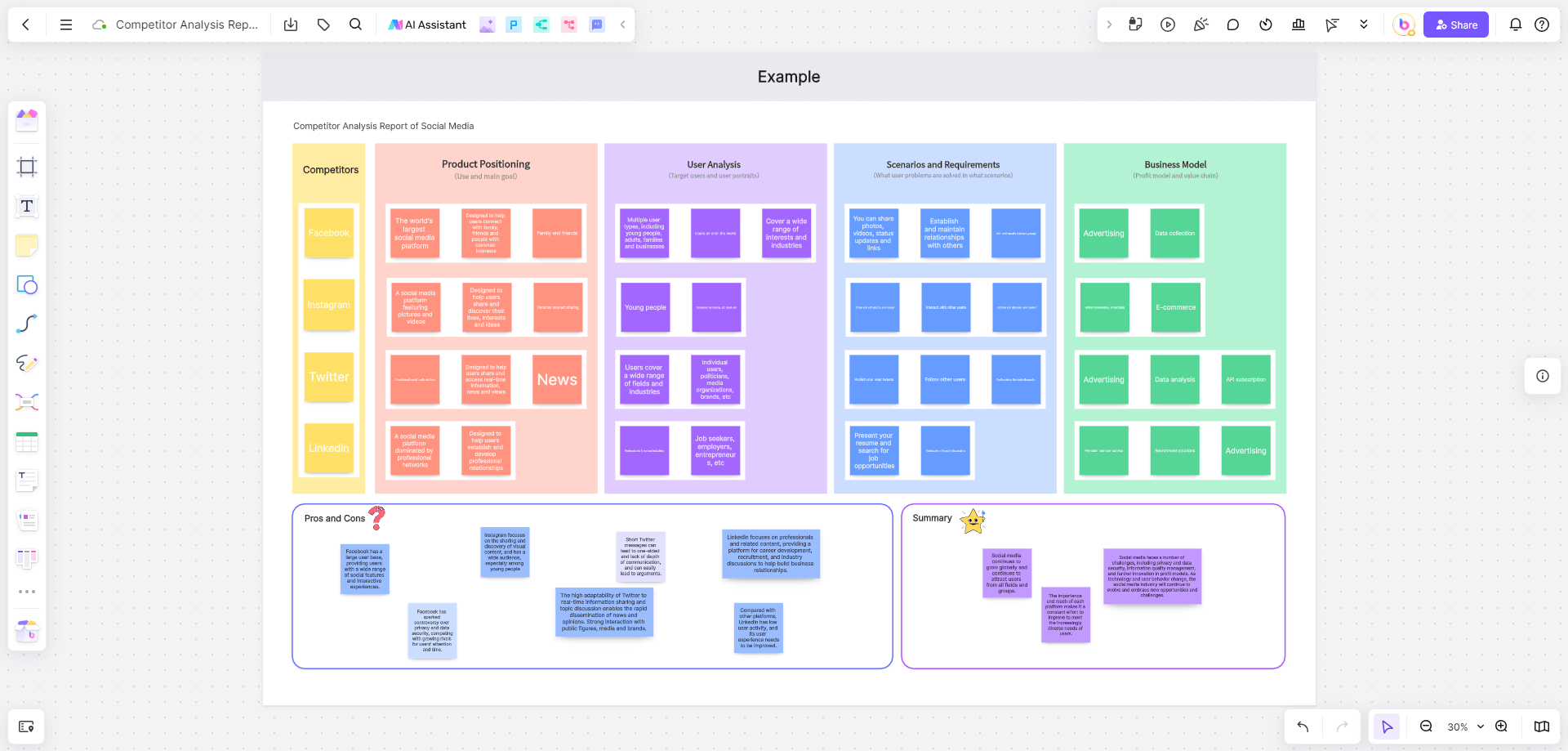
LivePlan:
Known for its user-friendly interface and robust features, LivePlan offers step-by-step instructions and hundreds of business plan templates. It also provides financial forecasting tools, which are crucial for startups looking to project future growth.
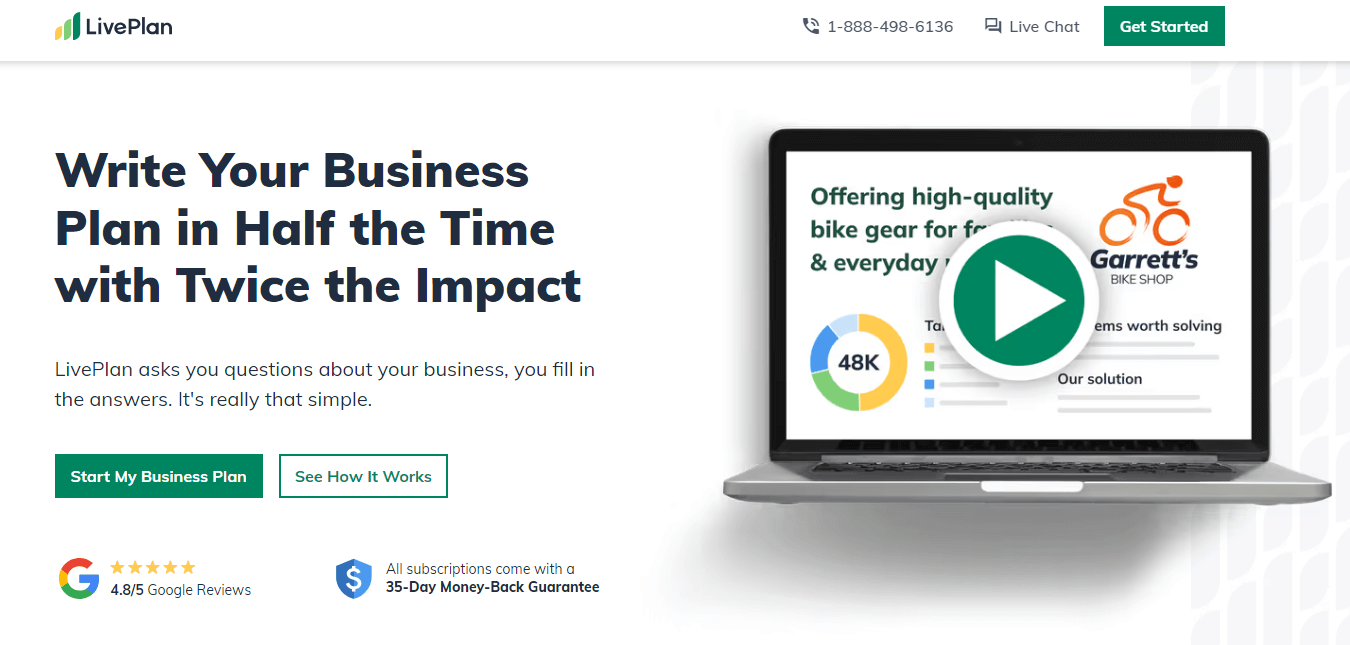
Bizplan:
Bizplan offers a drag-and-drop builder, making it easy to create a plan without prior experience. It integrates with financial tools and allows real-time collaboration, making it ideal for team-based startups.
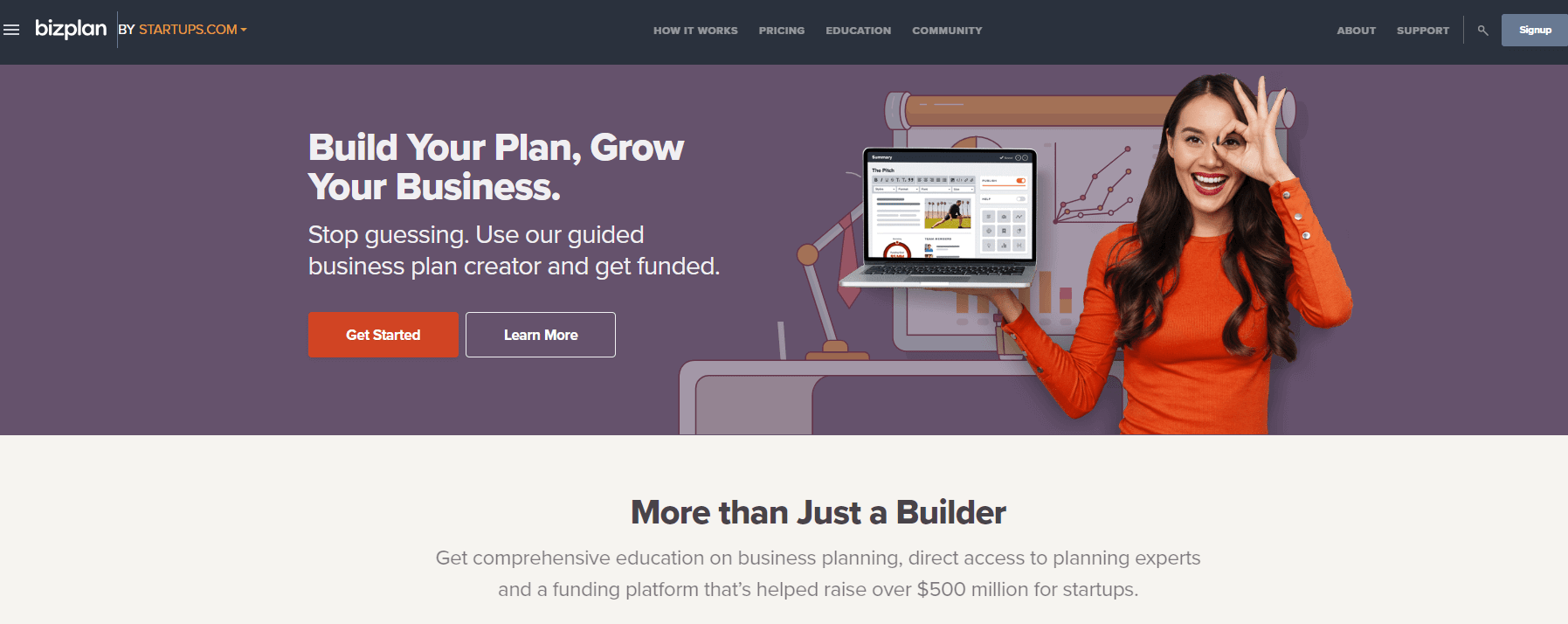
Enloop:
Enloop automates the writing process with a focus on financial projections. It generates a performance score for your plan, helping you improve weak areas before finalizing it.
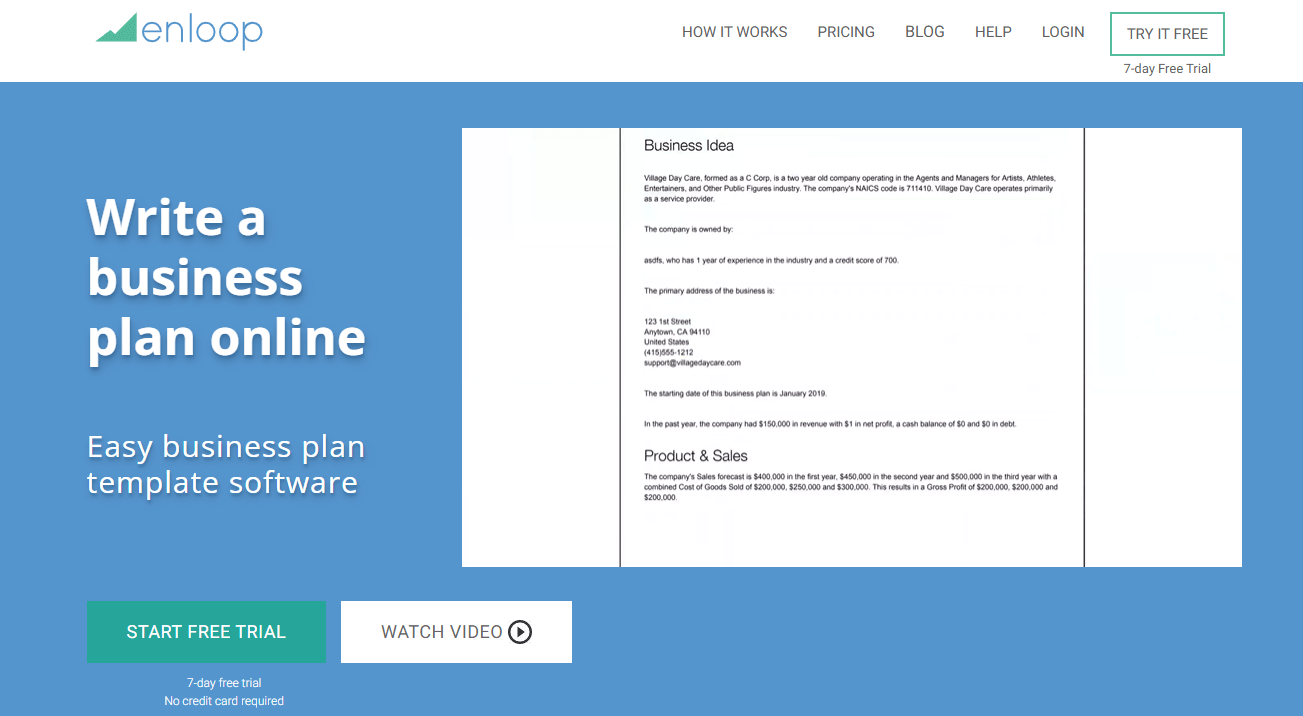
PlanGuru:
PlanGuru specializes in financial forecasting, budgeting, and performance review. It is particularly useful for startups that need to delve deep into financial analytics.
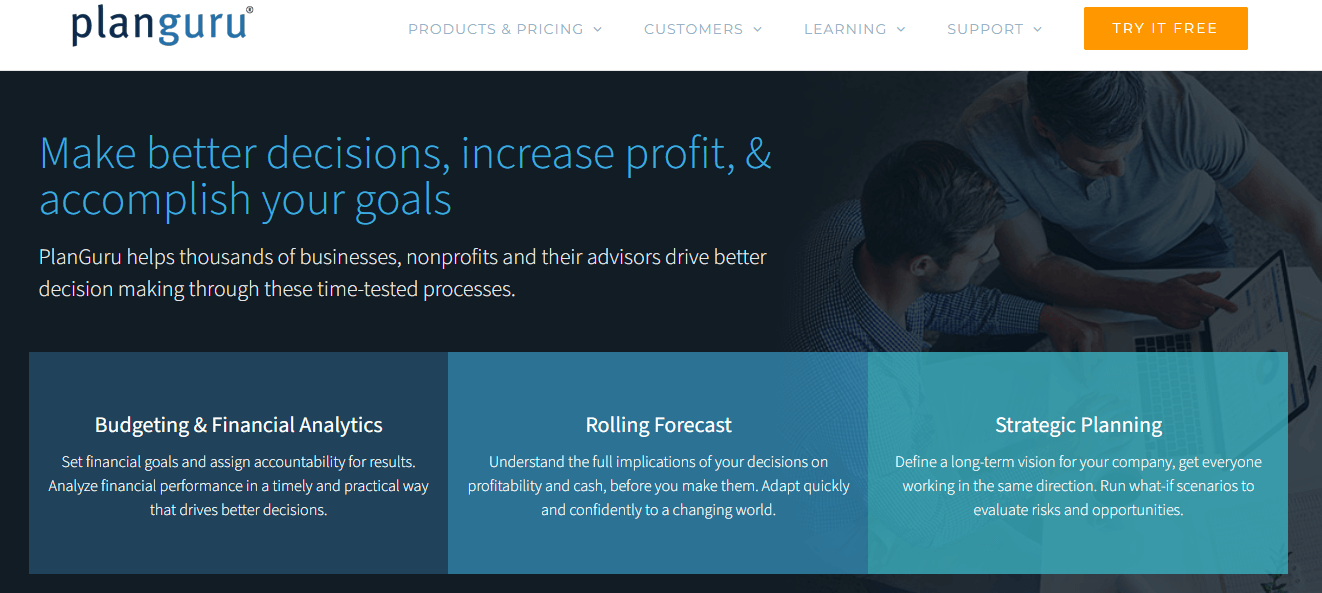
Features to Look for in Business Plan Software
When choosing business plan software, consider the following features:
User-Friendly Interface: The software should be easy to navigate, with a clean and intuitive design.
Customizable Templates: Look for a variety of start up business plan templates that can be customized to fit your specific needs.
Financial Forecasting Tools: These tools are crucial for creating accurate financial projections, which are often required by investors and lenders.
Collaboration Capabilities: The ability to collaborate in real-time with team members can streamline the planning process and ensure that everyone is on the same page.
Integration with Other Tools: Seamless integration with tools like accounting software, CRMs, and project management systems can enhance efficiency.
Customer Support and Resources: Reliable customer support and a wealth of resources like tutorials and guides can help you get the most out of your business plan software.
By evaluating these factors, you can choose the right business plan software that will streamline the process and help you create a robust plan for your startup.
How Can Boardmix Help You Build Your Business Plan?
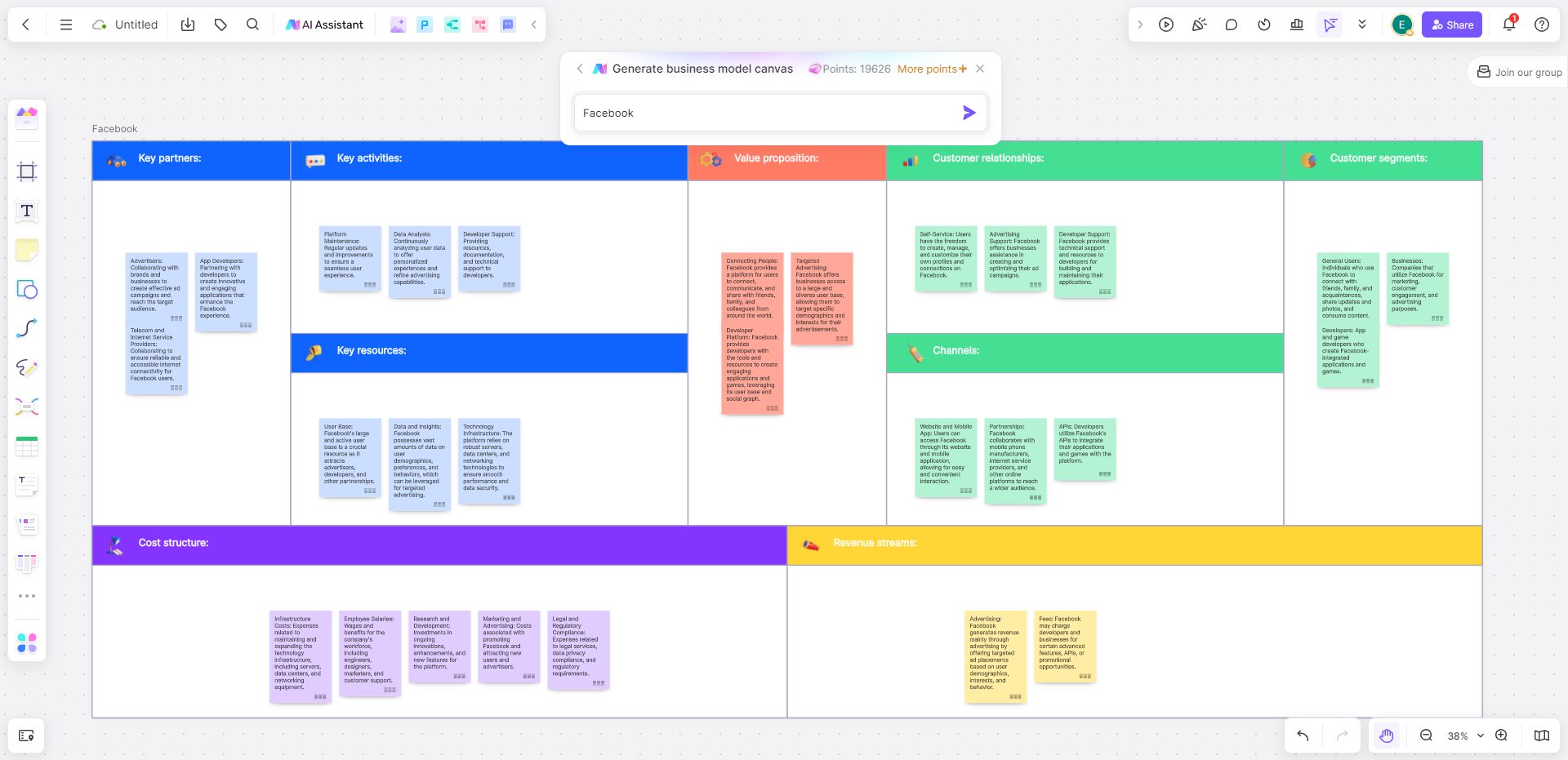
Boardmix is a versatile tool that can revolutionize the way you approach business planning. Here's a step-by-step guide on how to use Boardmix to build your business plan for start up company:
Step-by-Step Guide to Building a Business Plan with Boardmix
Start with a Template: Boardmix offers a variety of customizable start up business plan templates. Choose a template that fits your business type and industry, and use it as a starting point.
Customize the Template: Tailor the template to your needs by adding or removing sections. Boardmix’s drag-and-drop interface makes it easy to rearrange elements and add custom content.
Collaborate with Your Team: Invite team members to collaborate in real-time. Boardmix allows you to assign tasks, leave comments, and track changes, ensuring that everyone is aligned and contributing to the plan.
Incorporate Financial Projections: Use Boardmix’s integration with financial tools to input your financial data. Boardmix supports the insertion of documents in a variety of formats, including pdf, word, excel, etc.
Refine Your Plan with Visual Tools: Enhance your business plan for start up company with visuals like flowcharts, graphs, and diagrams. Boardmix’s whiteboard features allow you to brainstorm ideas and visually organize your plan.
Finalize and Export: Once your plan is complete, use Boardmix to export it in various formats, including PDF and png. You can also use the Boardmix AI feature to convert the plan into presentation form for easier presentation. This flexibility ensures that you can present your business plan in the most effective way possible.
Use Templates for Start up Business Plan
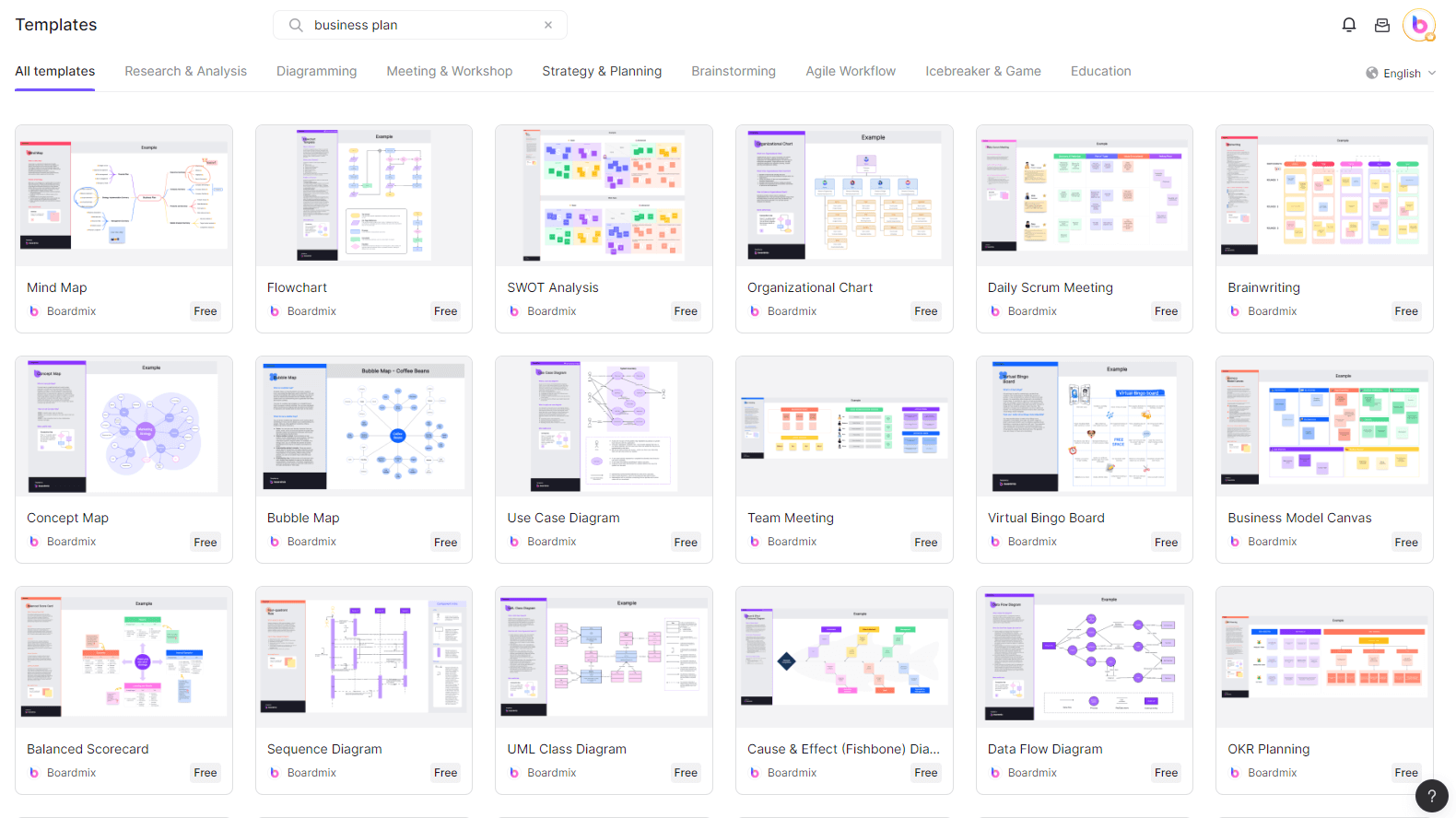
One of the key advantages of using Boardmix is its extensive library of start up business plan templates. These templates are designed to meet the needs of various industries and business types, providing a solid foundation for your plan. By starting with a template, you can save time and ensure that all essential components are included in your plan.
By following the above steps, Boardmix can help you create a professional, comprehensive business plan that is tailored to your startup's needs.
What Are Common Mistakes to Avoid in a Startup Business Plan?
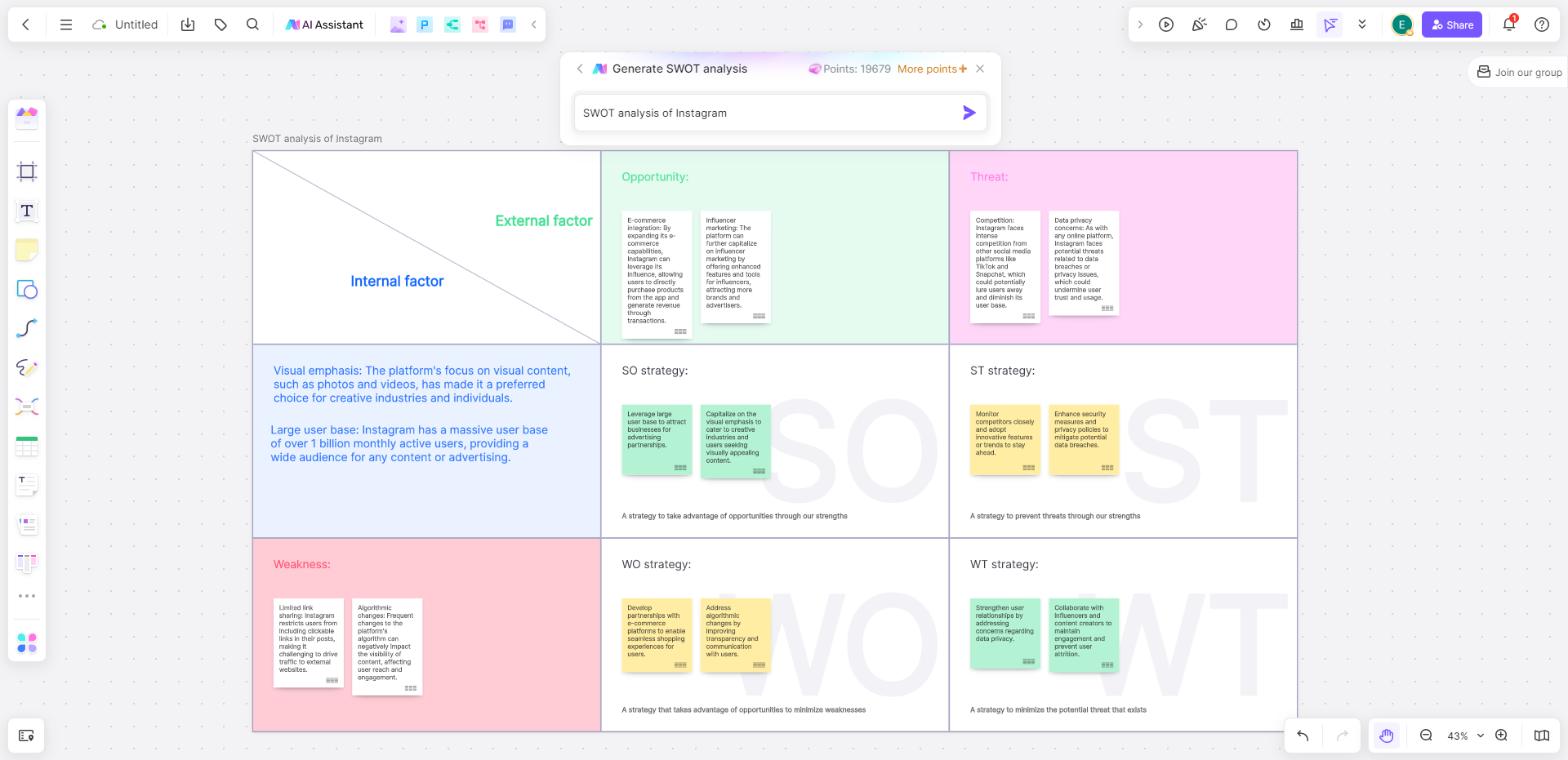
Creating a business plan for start up company can be challenging, and it's easy to make mistakes that could hinder your success. Here are some common pitfalls to avoid:
Lack of Research: Insufficient market research can lead to unrealistic assumptions about your target audience and competition. Make sure to back up your plan with solid data.
Overly Optimistic Projections: While it's important to be positive, overly optimistic financial projections can raise red flags with investors. Aim for realistic and attainable goals.
Ignoring Potential Risks: Failing to identify and plan for potential risks can leave your business vulnerable. Address potential challenges and outline strategies to mitigate them.
Inconsistent or Vague Information: Ensure that your business plan for start up company is consistent, clear, and free of contradictions. Vague information can confuse readers and weaken your plan.
Neglecting the Executive Summary: The executive summary is often the first section investors read, so it should be compelling and concise. Don't neglect this crucial part of your business plan.
Conclusion
Crafting a winning business plan for your startup company is a critical step in your entrepreneurial journey. By understanding what to include in your plan, choosing the right business plan software, and leveraging tools like Boardmix, you can create a comprehensive and professional plan that will set your startup on the path to success. Remember to avoid common mistakes, stay realistic in your projections, and continuously refine your plan as your business evolves. With the right approach and tools, your business plan for start up company can become a powerful tool for achieving your startup's goals.





